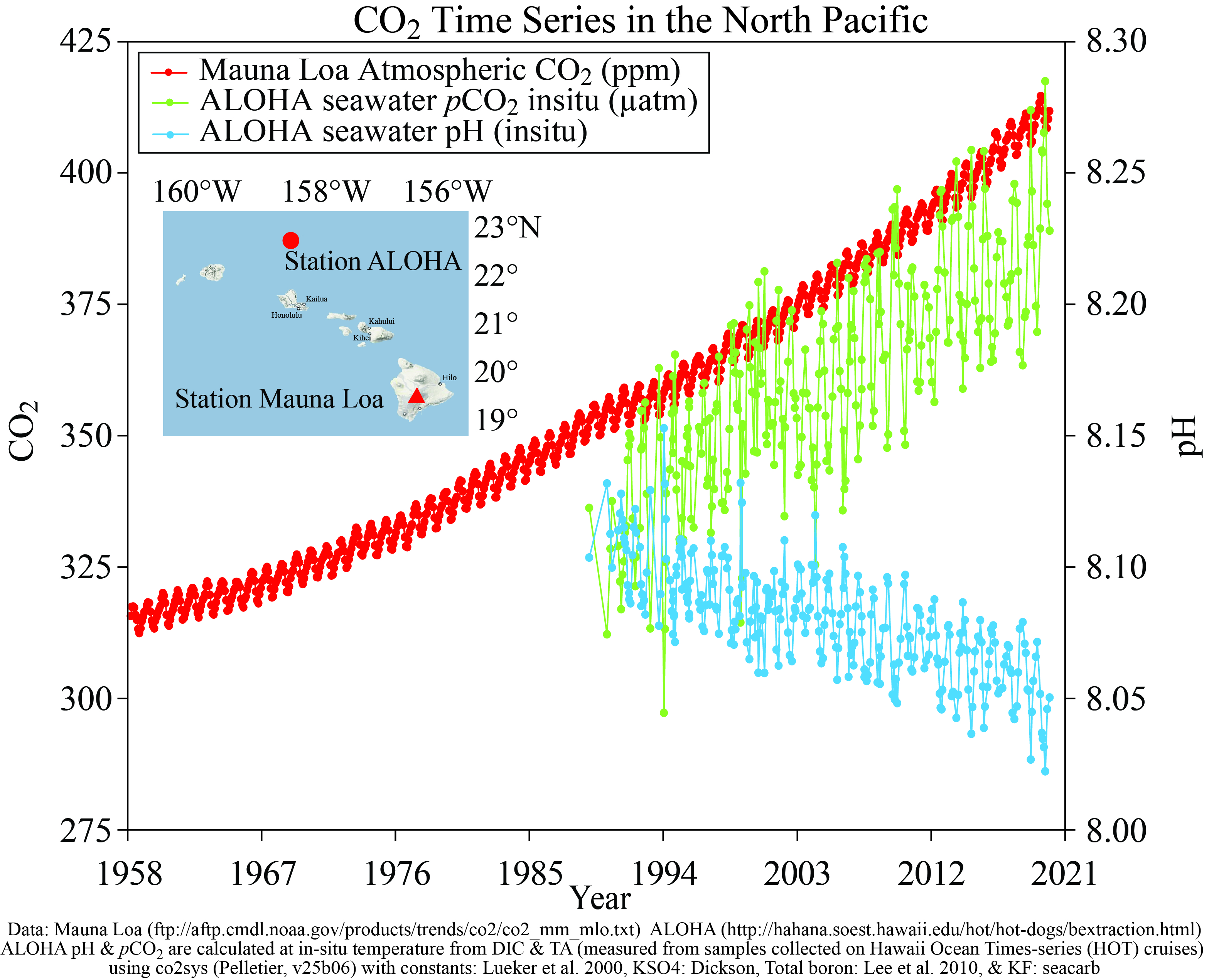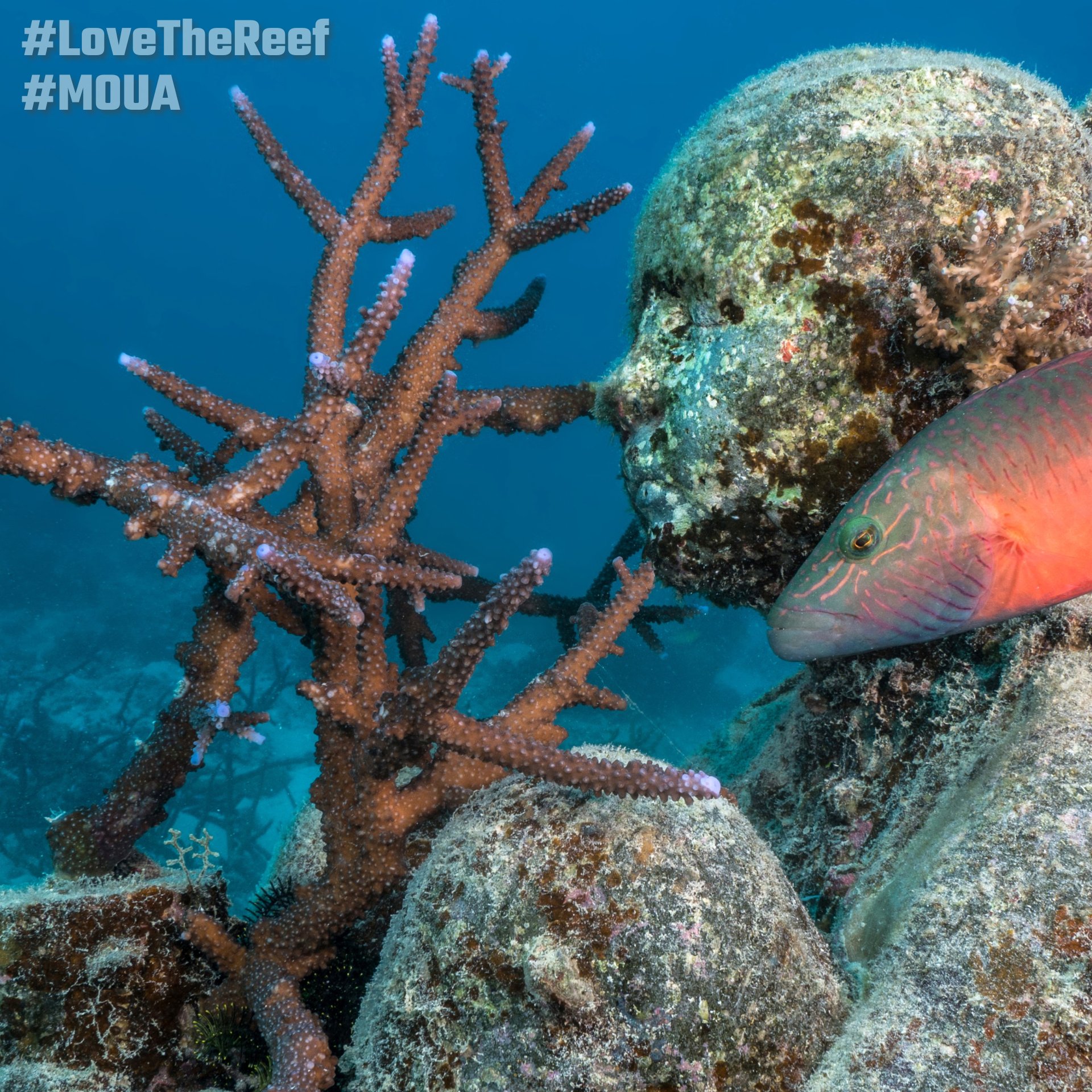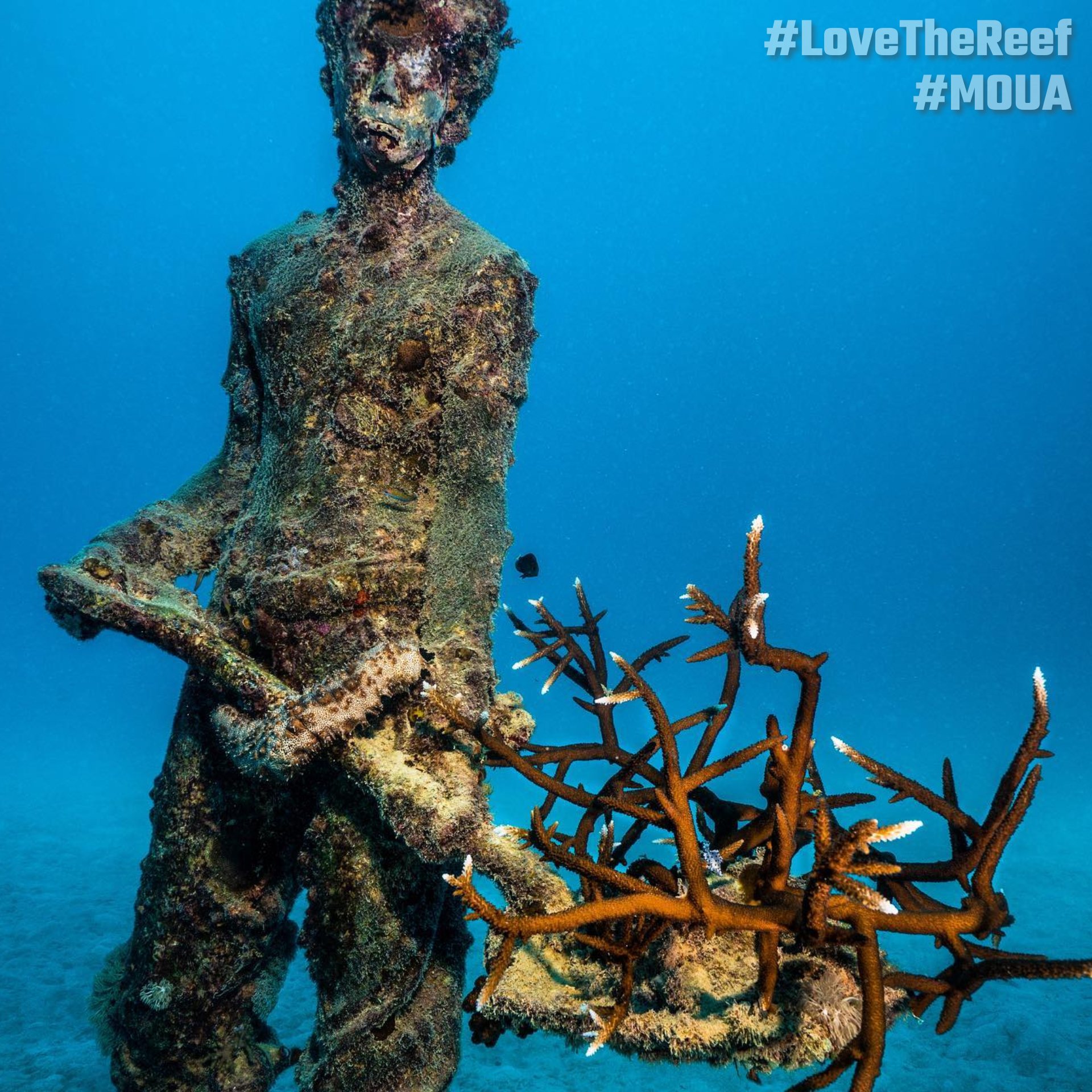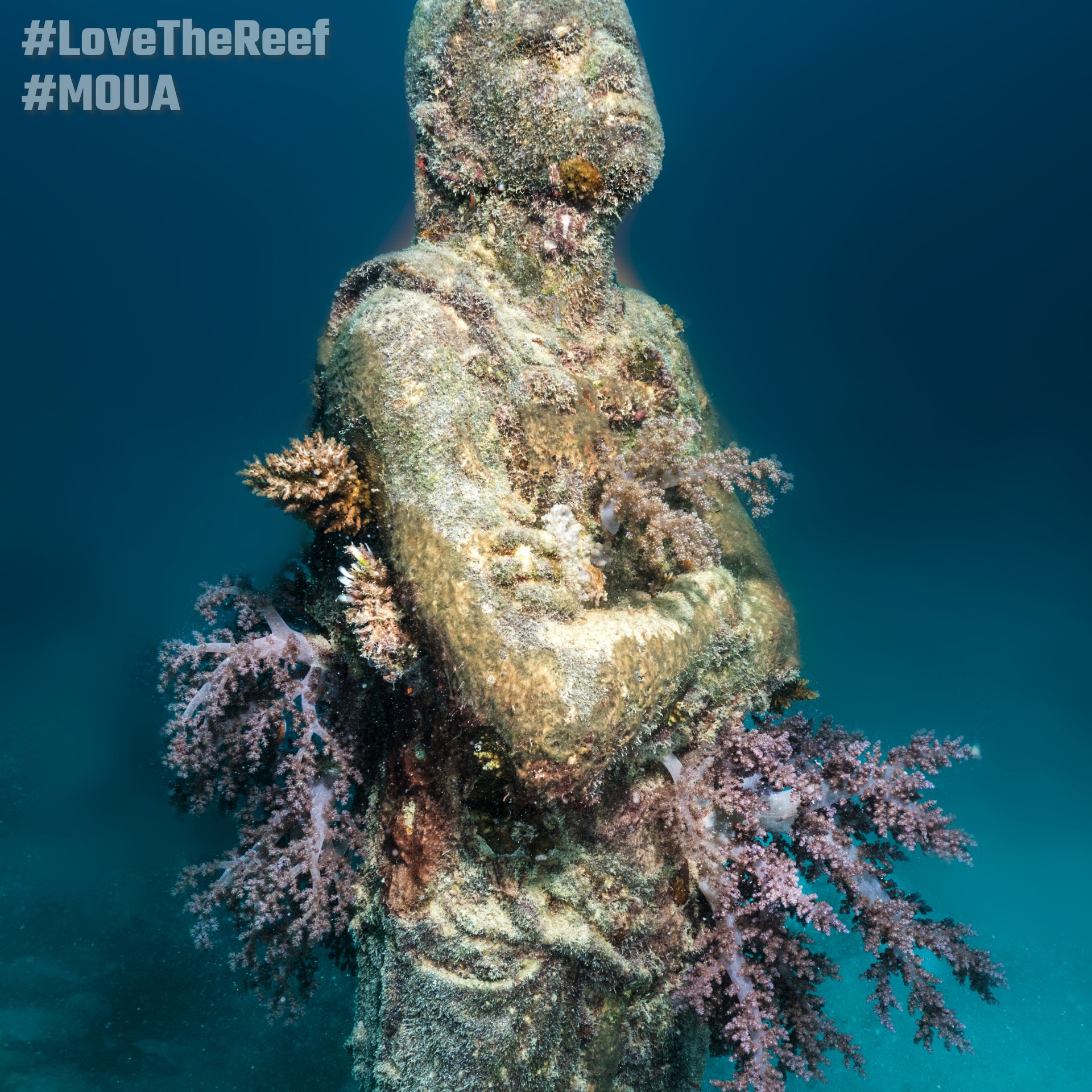
PROTECT
The Great Barrier Reef is an awe-inspiring wonder that needs to be protected for future generations to come.
Why protect the reef?
The Great Barrier Reef, or Sea Country as it is known to First Nations people, holds immense ecological, economic and cultural significance.
Ecologically, it is one of the most biodiverse ecosystems on the planet, home to a vast array of marine species. The reef provides critical habitat for numerous fish, corals, and other marine organisms, supporting their life cycles and promoting biodiversity. Additionally, it acts as a natural barrier, protecting the coastline from storm surges and erosion.
Economically, the Great Barrier Reef is a major tourist attraction, drawing millions of visitors each year and generating billions of dollars in revenue for the local and national economy. It supports a wide range of industries, including tourism, fishing, and research, creating jobs and livelihoods for countless people.
Culturally, the Great Barrier Reef or Sea Country holds immense significance for Indigenous Australian communities, representing a living connection to their ancestors and a source of ancient knowledge and heritage.
Therefore, preserving and protecting the Great Barrier Reef is not only vital for its ecological integrity but also for the sustainability of the surrounding communities and the broader economy.
“THe great barrier Reef is one of the most biodiverse ecosystems on the planet, home to a vast array of marine species AND generates billions of dollars in revenue for The economy.”
is the Reef in Danger?
The Great Barrier Reef and its corals face numerous threats that put their existence in jeopardy.
One of the primary concerns is climate change, which leads to rising sea temperatures and ocean acidification. These changes can cause coral bleaching, where corals expel their symbiotic algae, resulting in their death and the loss of vibrant reef ecosystems. Additionally, increased carbon dioxide levels contribute to ocean acidification, making it harder for corals to build and maintain their calcium carbonate skeletons.
Human activities also pose significant risks, such as pollution from coastal development, agricultural runoff, and improper waste disposal. Overfishing and destructive fishing practices further disrupt the delicate balance of the reef ecosystem. Without immediate and concerted efforts to mitigate these threats, the Great Barrier Reef and its corals will continue to face a critical and uncertain future.
Ocean temperature
The NOAA Coral Reef Watch satellite temperature data for the central Great Barrier Reef in the Sea Country, where MOUA is situated, provides a comprehensive view of the reef's water temperature changes since 1985. The data unveils a concerning trend of consistent temperature rise over the years, leading to increased heat stress on the corals and a greater likelihood of bleaching events. Although not every year experiences such events, they are occurring with increasing frequency, leaving less time for the corals to recover. This highlights the urgency of addressing the underlying causes of rising temperatures and taking proactive measures to preserve and restore the health of the Great Barrier Reef's fragile ecosystem.
Ocean Acidity
Ocean acidification is a concerning process caused by the rising levels of carbon dioxide (CO2) in the atmosphere, which gets absorbed by the oceans. The Hawaii NOAA Carbon Dioxide Time-Series provides valuable insights into this phenomenon. As CO2 dissolves in seawater, it forms carbonic acid, leading to a decrease in ocean pH and increased acidity. This acidity hinders the ability of corals to build and maintain their calcium carbonate skeletons, essential for their structural integrity. Consequently, corals become more susceptible to bleaching, diseases, and stunted growth. Ocean acidification also affects the broader reef ecosystem, impacting other organisms like shell-forming species. While the long-term consequences of ocean acidification on coral reefs are still being studied, it is evident that immediate action is necessary to mitigate this threat.
“One of the primary concerns is climate change, which leads to rising sea temperatures and ocean acidification. These changes can cause coral bleaching and the loss of vibrant reef ecosystems.”
What CAN I DO?
Each and every one of us can contribute to fighting climate change and protecting the Great Barrier Reef by making some #SmallChanges.
Make small Daily changes
By taking collective action, we can effectively combat climate change and ensure the long-term health of the Great Barrier Reef - all it takes are some #SmallChanges to our daily routine.
-
Share reef-safe messages on social media #MOUA #SmallChanges
Reduce electricity use
Turn off power at the wall when not in use
Use energy efficient appliances and LED light fittings
Catch the breeze with open windows instead of air conditioners
Reduce your carbon emissions when getting around
Ride, walk, carpool or use public transport
Consider vehicles with improved fuel efficiency
Look at ways to reduce your greenhouse gas emissions
Consider using renewable energy
Install solar power and solar hot water systems
Purchase green power if available
Reduce, reuse or recycle
Donate items to charity or swap with friends and family, don’t send to landfill
Recycle whatever and whenever you can
Look for food and products with minimal or no packaging, or packaging that can be recycled
Audit how much plastic you’re using and find ways to minimise it, for example take reusable containers for your lunch, reusable shopping bags, or purchase bulk foods
Stop using single-use
Bring your own reusable coffee cups and say no to single-use straws
When eating out, take reusable containers and cutlery instead of using plastic
Be a conscious consumer
Make informed choices about the products you buy and, where possible, consider choosing sustainable and ethical products
Swap and share products, buy second hand, and buy locally-produced items
Literally make changes in your house and backyard
Set up a worm farm and use the castings to fertilise your garden
Compost food scraps, shredded paper, grass clippings, leaves and cuttings (except noxious weeds and diseased cuttings), vacuum cleaner dust, used vegetable oil, tea leaves and bags, coffee grounds and egg shells
Wash your car on the lawn to minimise detergent runoff into drains
Operate your dishwasher and washing machine only when you have a full load
Minimise water runoff by planting trees, garden beds and ground cover around your home
Use environmentally-friendly cleaners and fertilisers
Keep gutters, sinks and drains free of chemicals and rubbish — what washes down sinks and drains could end up on the Reef
Clean filters in your air conditioner and dishwasher regularly so they run efficiently
Get involved
Join community clean-ups
Share your messages and knowledge about the Reef with others, i.e. share reef-safe messages on social media - scroll down to share this!
-
Reduce and recycle
Encourage recycling at your workplace
Only order the stationery you need
Think before you print and utilise electronic publishing
Re-use office paper — use recycled paper and promote double sided printing and copying
Take your own coffee mug instead of using polystyrene cups
When organising events, avoid single-use plastics and look for food and products with minimal or no packaging, or packaging that can be recycled
Reduce energy consumption
Switch off lights when not in your workplace
Turn your computer monitor off when not in use
Have your air conditioner maintained regularly
-
At home action to take to school
Pack a ‘nude food’ zero waste lunchbox
Use bento box style lunchboxes to pack food without plastic wraps or packets
Use reusable water bottles, not single-use plastic
Get involved in school activities and education initiatives
Encourage recycling and revegetation program
Reduce plastic use in your school and conduct a waste audit to target the most common items
Conserve and manage water and energy use in school buildings
Hold a clean-up day at your school, park, creek, beach or oval
Form an environmental committee in your school to make your school more sustainable
Join the Great Barrier Reef Marine Park Authority Reef Guardian Schools program (if your school is in the catchment region)
Use the 'at home' messages at your school — get everyone involved
-
Protect your patch — follow zoning rules out on the water, report illegal activity, and follow these responsible reef practices
Take your rubbish home with you
If you see rubbish, pick it up and recycle or dispose of it thoughtfully
Choose high standard tourism operators with eco certification
Take part in Eye on the Reef, a monitoring program that enables anyone who visits the Great Barrier Reef to contribute to its long-term protection. Simply download the app and share what you see or complete a monitoring survey
Check out Responsible Reef Practices tips before heading out on the water
small changes Checklist
We understand that even making small changes takes time so why not download and print out our checklist to help you keep on track?
A big thank you to the Great Barrier Reef Marine Park Authority (GBRMPA) for providing the above list of things we can all do to help protect the reef as part of their Love the Reef campaign.
Marine Field Guides
Using the citizen science app iNaturalist, we have created marine species field guides for John Brewer Reef / MOUA and Magnetic Island.
Share The Reef Love
One impactful step is sharing #LoveTheReef messages on social media with your network. By spreading awareness about the importance of reef conservation and promoting responsible practices, we can inspire others to join the cause.
The Great Barrier Reef holds immense ecological and economic value, but it faces threats from climate change, pollution, and human activities. By taking collective action, we can effectively combat climate change and ensure the long-term health of this remarkable natural wonder - all it takes are some simple changes to our daily routine. #LoveTheReef #MOUA #CollectiveAction #SmallChanges
OR share THe Reef love with another image
Help us help the Reef
Support us in drawing attention to the challenges the reef faces.
Shop MOUA
By purchasing MOUA merchandise, you not only get unique and beautiful items but also contribute directly to the protection of the Great Barrier Reef. Every purchase helps fund our underwater art projects, science programs, and media work. Show your love for the reef and make a tangible impact by shopping our collection.













